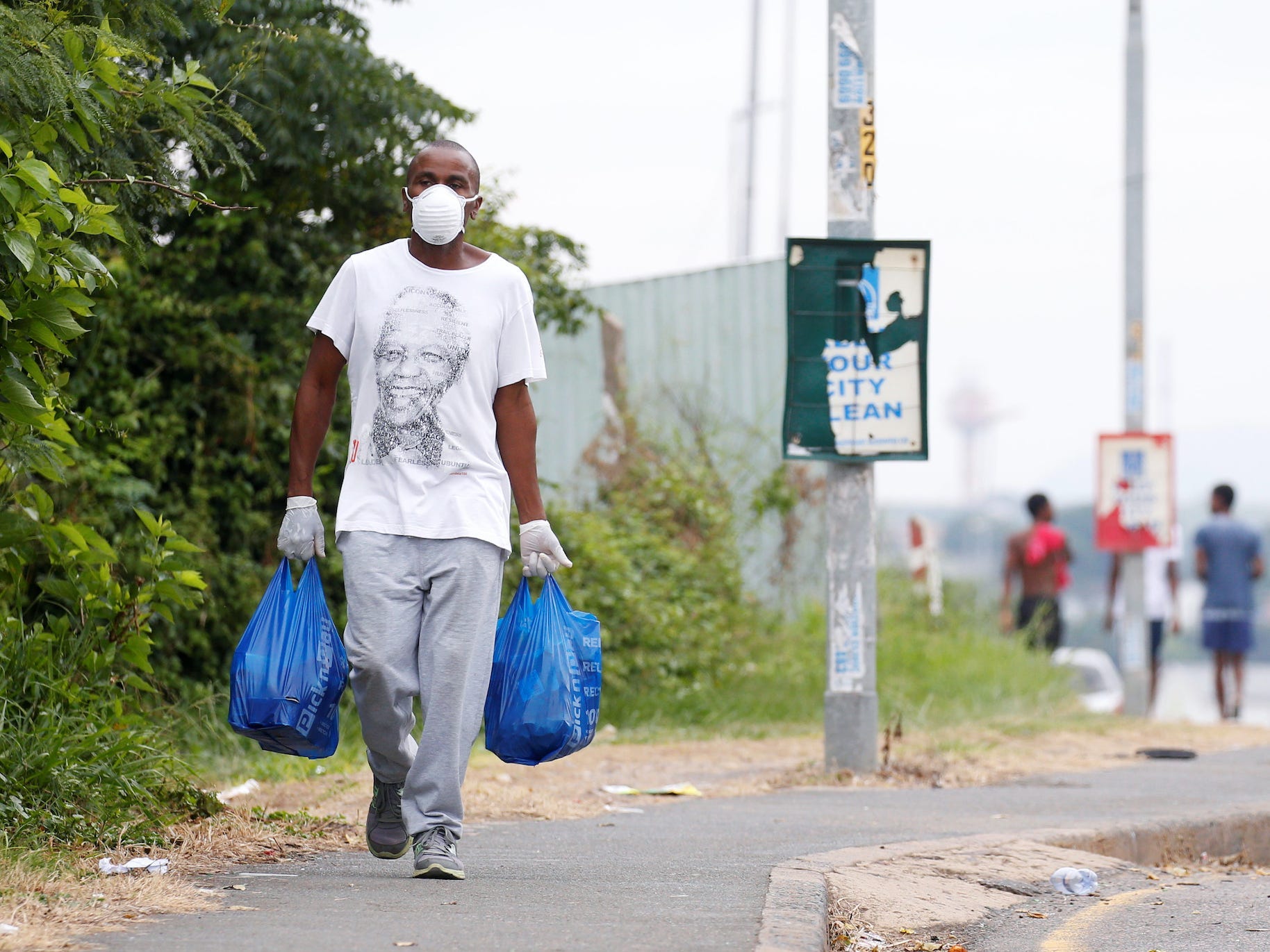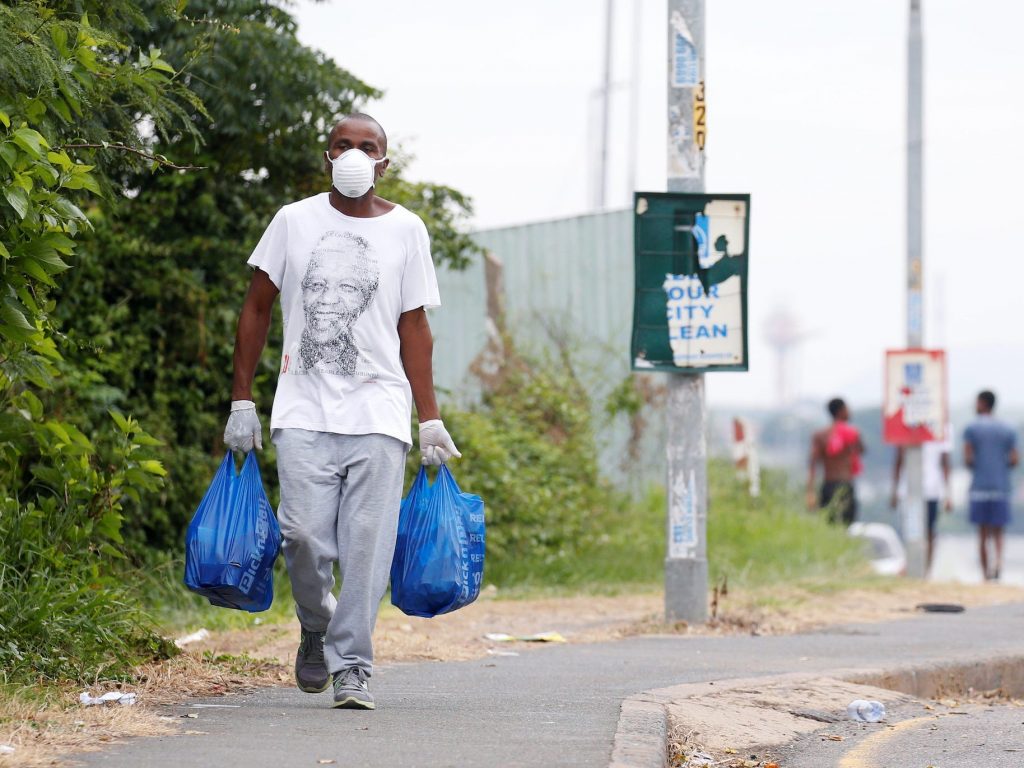
REUTERS
- South Africa has tightened coronavirus restrictions to stop the spread of the contagious Delta variant.
- Alcohol sales and gatherings are banned, and a curfew is in place.
- It's one of the first countries to re-enter a nationwide lockdown to curb the spread of Delta.
- See more stories on Insider's business page.
South Africa has tightened coronavirus restrictions during a "massive resurgence of infection" driven by the fast-spreading Delta variant.
South Africa's President Cyril Ramaphosa said in a televised address Sunday that the country was in the "grip of a devastating wave." He banned alcohol sales and gatherings other than funerals, and imposed a nighttime curfew.
He said that "by all indications" the current wave would be worse than the virus peaks of 2020. On Sunday, South Africa recorded more than 254 new coronavirus cases per million – higher than at the peak of the first wave, in July 2020, although slightly lower than the second peak, in January of this year.
For comparison, on the same day the US recorded about 35 new daily cases per million, according to Oxford University's Our World in Data.
Vaccination rates in South Africa remain low. Less than 5% of the population have had at least one dose of a COVID-19 vaccine, according to Our World in Data.
Ramaphosa said that the Delta variant was rapidly replacing the Beta variant, first detected in South Africa, as the dominant variant. It had been detected in five provinces - Eastern Cape, Western Cape, KwaZulu-Natal, the Free State, and Gauteng, he said.
Gauteng, which contains South Africa's largest city, Johannesburg, had the highest number of Delta cases and more than 60% of the country's new cases, he said.
Ramaphosa placed the country on alert level 4, one level below full lockdown, for at least two weeks. "Measures we've so far adopted may no longer be sufficient to reduce transmission," he said, warning that people previously infected with the Beta variant could still get infected with Delta.
-South African Government (@GovernmentZA) June 27, 2021
Ramaphosa said that the Delta variant was about one and a half times more infectious than the Beta variant, and had mutations that may help it avoid the immune response.
South Africa's schools are now closed, alcohol is prohibited, and all gatherings are banned except for funerals, where numbers will be capped at 50. Restaurants are only open for takeaways or delivery, and people are encouraged to work from home. A strict nighttime curfew is in place and masks are mandatory in public. Travel is still allowed, though.
Juliet Pulliam, director at the South African Centre for Epidemiological Modelling and Analysis (SACEMA) said on Twitter Monday that the last 15 months had been "brutal" for South Africa. "The next few months will continue to try us," she said. Pulliam said that vaccination was the "best hope" for making COVID-19 manageable in the country.

